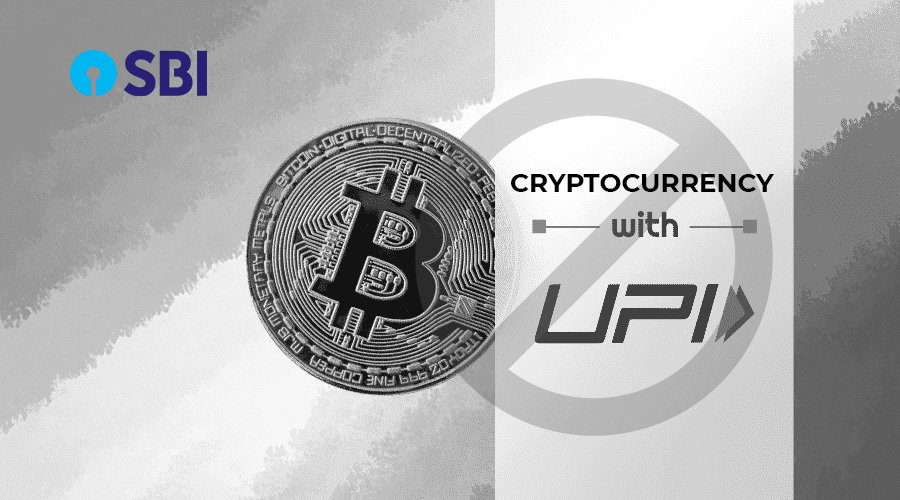
James Carter
SBI UPI Crypto: Exploring the Integration of Cryptocurrencies into India’s UPI

Cryptocurrencies have gained significant attention globally as a digital or virtual form of currency that operates independently of central banks and uses cryptography for security. In India, the State Bank of India (SBI) is the largest public sector bank, and the Unified Payments Interface (UPI) is a real-time interbank electronic fund transfer service that has gained widespread adoption for its ease of use, security, and interoperability. In recent years, there has been increasing interest in exploring the integration of cryptocurrencies into UPI, opening up new opportunities and challenges for the Indian financial ecosystem.
In this article, we will delve deep into the topic of “SBI UPI Crypto” and explore the potential benefits, challenges, and future outlook of integrating cryptocurrencies into UPI. We will provide a comprehensive analysis of SBI’s involvement in UPI and crypto, potential benefits of SBI UPI Crypto, challenges and risks, and discuss the future outlook of this emerging trend.
I. SBI’s Involvement in UPI and Crypto
The State Bank of India has been actively involved in promoting UPI as a convenient and secure payment system. UPI allows users to link multiple bank accounts to a single mobile application, facilitating interbank transactions in real time with a single Unified Payment Interface (UPI) ID. SBI has been one of the leading banks in India to adopt UPI and has offered UPI-based services to its customers, including person-to-person (P2P) transfers, person-to-merchant (P2M) transactions, bill payments, and more.
On the other hand, SBI has taken a cautious approach towards cryptocurrencies. The Reserve Bank of India (RBI), which is the central bank of India, has issued multiple circulars cautioning banks and other financial entities about the risks associated with cryptocurrencies and advising them to refrain from dealing with them. SBI has complied with these guidelines and has not provided any direct cryptocurrency-related services to its customers.
However, SBI has shown interest in exploring the integration of cryptocurrencies into UPI. In a recent statement, SBI’s Chairman, Mr Dinesh Kumar Khara, highlighted the potential benefits of cryptocurrencies and stated that SBI is examining the possibility of offering crypto-related services within the UPI framework. This has generated considerable speculation about the future of “SBI UPI Crypto” and its potential impact on the Indian financial ecosystem.
II. Potential Benefits of SBI UPI Crypto
The integration of cryptocurrencies into UPI could offer several potential benefits for SBI, its customers, and the overall financial ecosystem in India. Let’s explore them in detail:
1. Enhanced Financial Inclusion
Financial inclusion, which aims to provide access to financial services to the unbanked and underbanked populations, has been a key priority for the Indian government and the banking sector. UPI has already played a significant role in driving financial inclusion by providing a simple, convenient, and cost-effective payment system for users across different segments of society, including those who do not have access to traditional banking services.
The integration of cryptocurrencies into UPI could further enhance financial inclusion by providing an additional avenue for the unbanked and underbanked populations to access financial services. Cryptocurrencies are not bound by geographical boundaries, and transactions can be conducted with just a smartphone and internet access, making them accessible to users in remote areas or those without a traditional bank account. This could open up new opportunities for SBI to reach out to underserved populations and provide them with access to modern financial services through UPI-based crypto transactions.
2. Streamlined Transactions
UPI has gained popularity for its instant and seamless transaction capabilities, allowing users to transfer funds in real-time, 24/7, without any delays or intermediaries. However, traditional transactions involving fiat currencies may still involve multiple intermediaries, such as banks, clearinghouses, and payment gateways, which can introduce delays, fees, and complexities.
On the other hand, transactions involving cryptocurrencies are typically peer-to-peer (P2P) and can be processed almost instantly without the need for intermediaries. This can result in streamlined transactions that are faster, cheaper, and more efficient compared to traditional fiat transactions. By integrating cryptocurrencies into UPI, SBI can leverage the advantages of blockchain technology to offer seamless and cost-effective transactions to its customers, thereby enhancing the overall user experience.
3. Increased Security and Transparency
UPI has been lauded for its robust security features, such as two-factor authentication, encryption, and tokenization, which ensure the confidentiality and integrity of transactions. Cryptocurrencies, powered by blockchain technology, also offer inherent security features, such as cryptographic encryption, distributed consensus, and immutability, that make them highly secure.
By integrating cryptocurrencies into UPI, SBI can further enhance the security of transactions. Cryptocurrencies can provide an additional layer of security by leveraging the cryptographic features of blockchain, which can protect against fraud, tampering, and unauthorized access. Additionally, blockchain-based transactions are transparent and traceable, allowing for increased accountability and audibility, which can further enhance the overall security and trustworthiness of UPI-based crypto transactions.
4. Diversified Investment Opportunities
Cryptocurrencies are not only used as a medium of exchange but also as a form of investment. Many users view cryptocurrencies as a viable investment option with the potential for high returns. By integrating cryptocurrencies into UPI, SBI can provide its customers with diversified investment opportunities beyond traditional financial instruments.
UPI-based crypto transactions could allow SBI customers to buy, sell, and hold cryptocurrencies as an investment, similar to how they transact with other financial assets. This can provide customers with a convenient and regulated platform to participate in the cryptocurrency market while also benefiting SBI by generating additional revenue through transaction fees and commissions.
5. Innovation and Technological Advancement
The integration of cryptocurrencies into UPI could also promote innovation and technological advancement in the Indian financial ecosystem. Cryptocurrencies are built on blockchain technology, which is a decentralized, distributed, and transparent ledger system that has the potential to revolutionize various industries, including finance.
By embracing cryptocurrencies and blockchain, SBI can foster innovation in financial services by exploring new use cases, business models, and technologies. This could lead to the development of novel financial products, services, and solutions that can cater to the evolving needs of customers, businesses, and the economy.
Moreover, SBI’s involvement in “SBI UPI Crypto” could also encourage other financial institutions to explore similar initiatives, leading to wider adoption of cryptocurrencies and blockchain technology in India.
III. Challenges and Risks of SBI UPI Crypto
While the integration of cryptocurrencies into UPI offers several potential benefits, there are also significant challenges and risks that need to be considered. Let’s discuss some of the major challenges and risks associated with “SBI UPI Crypto”:
1. Regulatory Framework
One of the biggest challenges in integrating cryptocurrencies into UPI is the regulatory framework. As of now, the regulatory environment for cryptocurrencies in India is uncertain and evolving. The Reserve Bank of India (RBI) has issued multiple circulars cautioning banks and other financial entities about the risks associated with cryptocurrencies and advising them to refrain from dealing with them.
The Indian government has also expressed concerns about the potential risks of cryptocurrencies, such as money laundering, fraud, and consumer protection. There have been discussions and proposals for regulating cryptocurrencies, but as of now, there is no specific legislation governing cryptocurrencies in India. This regulatory uncertainty can pose challenges for SBI in terms of compliance, risk management, and legal implications of integrating cryptocurrencies into UPI.
To mitigate this challenge, SBI would need to work closely with regulatory authorities to ensure that “SBI UPI Crypto” complies with existing regulations and guidelines. This may involve obtaining necessary licenses, adhering to anti-money laundering (AML) and know-your-customer (KYC) regulations, and implementing robust risk management practices. SBI would also need to closely monitor regulatory developments in India and adapt its strategy accordingly to ensure compliance with any future regulations related to cryptocurrencies.
2. Volatility and Market Risks
Cryptocurrencies are known for their high volatility and market risks. Prices of cryptocurrencies can fluctuate significantly within a short period of time, which can impact the value of investments and transactions. This volatility can pose risks for both SBI and its customers in the context of “SBI UPI Crypto”.
SBI would need to implement risk management measures to address the potential market risks associated with integrating cryptocurrencies into UPI. This may involve setting limits on transaction amounts, implementing risk assessment and monitoring mechanisms, and educating customers about the risks of cryptocurrencies. Additionally, SBI could consider offering a diversified range of cryptocurrencies to reduce the concentration risk associated with a single cryptocurrency.
3. Security Risks
While cryptocurrencies offer inherent security features, they are not immune to security risks. Cybersecurity threats, such as hacking, phishing, and ransomware attacks, can pose significant risks to the security and integrity of cryptocurrencies and transactions.
To mitigate security risks, SBI would need to implement robust cybersecurity measures to protect “SBI UPI Crypto” from potential threats. This may involve implementing multi-factor authentication, encryption, and other cybersecurity best practices. SBI would also need to educate its customers about the importance of cybersecurity and provide guidance on how to secure their cryptocurrency holdings and transactions.
4. Customer Education and Awareness
Cryptocurrencies are still relatively new and unfamiliar to many people, including customers of SBI. Integrating cryptocurrencies into UPI would require educating customers about the concept of cryptocurrencies, their benefits, risks, and how to use them securely.

SBI would need to invest in customer education and awareness initiatives to ensure that its customers have a clear understanding of cryptocurrencies and how to transact with them through “SBI UPI Crypto”. This may involve providing educational materials, conducting workshops and webinars, and offering customer support services for cryptocurrency-related queries. By ensuring that customers are well informed and educated about cryptocurrencies, SBI can reduce the risk of misunderstandings, misconceptions, and potential disputes related to “SBI UPI Crypto”.
5. Operational Challenges
Integrating cryptocurrencies into UPI would also pose operational challenges for SBI. Cryptocurrencies require a different technical infrastructure compared to traditional financial systems, and implementing and maintaining this infrastructure can be complex and resource-intensive.
SBI would need to invest in the necessary technology infrastructure, including robust blockchain systems, secure wallets, and transaction processing mechanisms, to support “SBI UPI Crypto”.
This would require skilled personnel, specialized training, and ongoing maintenance and upgrades. SBI would also need to establish partnerships with technology providers, exchanges, and other stakeholders to ensure smooth operations of “SBI UPI Crypto”.
6. Reputation and Brand Risks
The integration of cryptocurrencies into UPI can also pose reputation and brand risks for SBI. Cryptocurrencies are often associated with risks, such as volatility, scams, and illegal activities, which can impact the reputation and brand image of financial institutions associated with them.
To mitigate reputation and brand risks, SBI would need to proactively manage its communication and messaging around “SBI UPI Crypto”. This may involve providing clear and accurate information to customers and the public about the benefits, risks, and regulatory compliance of “SBI UPI Crypto”.
SBI would also need to ensure that its customer service and support are well-equipped to handle queries and concerns related to cryptocurrencies and address any negative perceptions or misconceptions that may arise. Building trust and credibility in the market by maintaining transparency, integrity, and compliance would be crucial to mitigating reputation and brand risks associated with integrating cryptocurrencies into UPI.
Summary
The integration of cryptocurrencies into UPI has the potential to transform the payments landscape in India and offer new opportunities for financial institutions like SBI. However, it also poses several challenges in terms of compliance, risk management, legal implications, volatility, security, customer education, operational readiness, reputation, and competition.
That needs to be carefully addressed. SBI would need to take a strategic approach, considering the opportunities and risks associated with integrating cryptocurrencies into UPI, and develop a well-thought-out plan to ensure a successful implementation.
Latest
Blockchain
09 May 2024
Blockchain
19 Apr 2024
Blockchain
16 Jan 2024
Blockchain
31 Aug 2023
Blockchain
24 Jun 2023
Blockchain
24 Jun 2023













